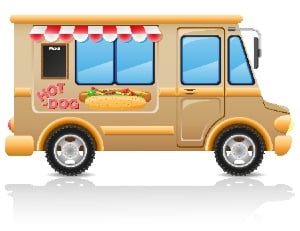 Food Trucks may have started as a big-city phenomenon, but their numbers are growing in big and small towns alike. While the restaurant industry continues to grow at a steady rate of approximately 2% each year, food trucks have increased at a rate of 7.9% annually over the past five years, according to FoodTruckr.com. In 2017, food trucks were a $2 million industry.
Food Trucks may have started as a big-city phenomenon, but their numbers are growing in big and small towns alike. While the restaurant industry continues to grow at a steady rate of approximately 2% each year, food trucks have increased at a rate of 7.9% annually over the past five years, according to FoodTruckr.com. In 2017, food trucks were a $2 million industry.
Much of the appeal may be the relatively low start-up and operating costs. But as with any business, food trucks come with their share of risks. The right type of restaurant insurance can help protect your investment if something happens. Taking proactive steps to avoid that “dreaded something” from happening can save lots of time, money, and headaches, and avoid increased restaurant insurance premiums as well.
Here are three food truck risks you should consider and tips to help you mitigate them:
Damage to Your Vehicle
Your food truck is your livelihood, and if something were to happen to it – like a fire or auto accident – that puts your vehicle out of commission for any length of time, your business could be in jeopardy. Here are some tips to avoid damage to your food truck:
- Vet your employees.
We know you have a lot of things to consider when hiring someone new, but if they will be driving your truck, it’s essential to check their driving record. If they’ve had multiple accidents or speeding tickets, the chances of them damaging your truck in an accident are probably higher. Plus, employees with bad driving records could cost you more on commercial auto insurance. - Drive Safely.
While your food truck is in motion, there’s always the possibility of an accident. However, there are safety measures that you can take and that you can share with your employees such as being an alert driver, maintaining your truck, Keeping enough space between you and the vehicle in front of you, etc. Mobile-Cuisine offers these food truck driving safety Tips.
Injury to an Employee
There are a lot of dangers in the food industry that also apply to food trucks like falling, burns, cuts, etc. Your employees can be your biggest asset and your biggest liability. Practicing safety in the kitchen can help save you money on Workers’ Compensation and liability costs, and it’s just good business. Here are tips to create a safe kitchen for your food truck:
- Create and enforce a safety plan.
This is a big one. It can be time-consuming, but it is well worth your time if it can avoid causing injury to employees or customers. - Train your employees.
Creating a safety plan and then simply letting it sit in a drawer gathering dust is a waste of time and money. Make sure your employees understand and follow the safety procedures you’ve put in place. Make it clear that safety is a priority and hat your safety plan isn’t just a formality, but something that every employee is expected to follow. - Create a safe environment.
Try to eliminate potential hazards by keeping floors clean and uncluttered, providing personal protective equipment when appropriate, properly maintaining kitchen equipment, and following manufacturers’ instructions.
Injury or Illness of a Customer
In this litigious society that we live in, every business owner needs to be aware of liability risks. If a customer standing in lines trips, falls, and hurts themselves, they could sue you. If they suffer from a food-related illness after eating your food, they could sue you. Liability insurance is a must, but here are some steps to limit injury and illness to your customers:
- To avoid food-related illnesses, follow food handling and safety measures such as storing food correctly, following proper cooking procedures, preventing cross-contamination, and practicing proper handwashing techniques.
- Ensure that the area around your truck is clear of hazards such as slippery surfaces, cords, etc., and clearly mark any potential hazards you may not be able to control.
Get the Best Commercial Insurance for Your Restaurant Business
Being proactive is important, but sometimes no matter how careful you are, accidents still happen. This is where the right insurance can help protect your business.
The independent agents at American Insuring Group specialize in all types of Commercial Insurance. Their independence means they are free to shop the market to get you the best deal on insurance that's right for your business.
So call us at (800) 947-1270 or (610) 775-3848, or contact us online.



 Every year 48 million people get sick from a foodborne illness, 128,000 are hospitalized, and 3,000 die, according to
Every year 48 million people get sick from a foodborne illness, 128,000 are hospitalized, and 3,000 die, according to  An HACCP plan is one of the best ways to ensure the safety of the food that you serve and to protect your customers, your employees, and your bottom line.
An HACCP plan is one of the best ways to ensure the safety of the food that you serve and to protect your customers, your employees, and your bottom line.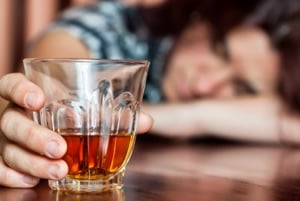
 Doesn’t it seem like kids grow up too fast these days? It’s easy to forget that as mature and as smart as they may seem, teenagers still lack the experience an adult has. And if you own a restaurant, there’s an excellent chance that you employ a few teenagers, which could impact your
Doesn’t it seem like kids grow up too fast these days? It’s easy to forget that as mature and as smart as they may seem, teenagers still lack the experience an adult has. And if you own a restaurant, there’s an excellent chance that you employ a few teenagers, which could impact your  Every industry comes with its own unique set of issues and concerns when it comes to insurance; the food industry is no exception. And of course, each individual restaurant is unique.
Every industry comes with its own unique set of issues and concerns when it comes to insurance; the food industry is no exception. And of course, each individual restaurant is unique.  Independent insurance agencies like American Insuring Group represent many different insurance companies (in our case, lots and lots of companies!), so we can find you the best rate for any type of restaurant insurance you need.
Independent insurance agencies like American Insuring Group represent many different insurance companies (in our case, lots and lots of companies!), so we can find you the best rate for any type of restaurant insurance you need.  If you have a dream of owning a restaurant, bar or nightclub, restaurant insurance is probably one of the last things you want to think about. It isn’t as exciting as creating a menu or choosing the right linens, but
If you have a dream of owning a restaurant, bar or nightclub, restaurant insurance is probably one of the last things you want to think about. It isn’t as exciting as creating a menu or choosing the right linens, but 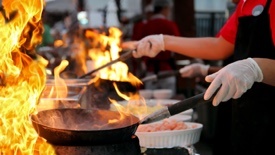 As the owner of a restaurant, you have a lot of responsibilities – managing employees, advertising, pricing, and the list goes on.
As the owner of a restaurant, you have a lot of responsibilities – managing employees, advertising, pricing, and the list goes on.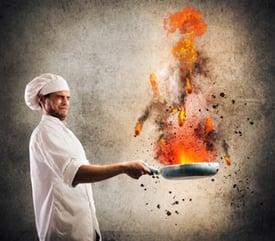 You’ve worked hard perfecting your recipes, hiring the right people, finding the perfect location, and creating a successful business.
You’ve worked hard perfecting your recipes, hiring the right people, finding the perfect location, and creating a successful business.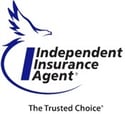 Don’t put your restaurant at risk. Trust the experienced Independent Insurance Agents at American Insuring Group to separate fact from fiction. You'll be confident knowing your restaurant is protected with affordable, high quality restaurant insurance.
Don’t put your restaurant at risk. Trust the experienced Independent Insurance Agents at American Insuring Group to separate fact from fiction. You'll be confident knowing your restaurant is protected with affordable, high quality restaurant insurance.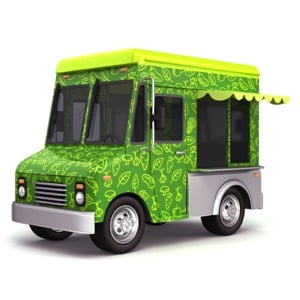 More people are getting into the food truck business than ever before. Food trucks offer a more affordable and flexible option for first-time entrepreneurs. Plus, many restaurateurs are adding food trucks to increase brand awareness and to cash in on the current growth of the food truck industry.
More people are getting into the food truck business than ever before. Food trucks offer a more affordable and flexible option for first-time entrepreneurs. Plus, many restaurateurs are adding food trucks to increase brand awareness and to cash in on the current growth of the food truck industry.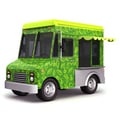 It may sound complicated and perhaps a bit overwhelming, but the independent agents at American Insuring Group can walk you through your options and help you determine the best food truck insurance for your operation.
It may sound complicated and perhaps a bit overwhelming, but the independent agents at American Insuring Group can walk you through your options and help you determine the best food truck insurance for your operation. 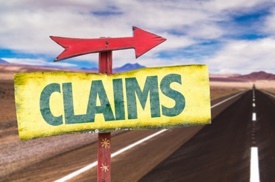 If you own a restaurant, you’ve probably worked hard to build strong relationships with your staff and create an environment conducive to teamwork. If you’re lucky, you’ve found the magical formula that balances friendliness with professionalism, and you’re proudly watching as your well-oiled team creates and delivers delicious food to your customers. You and your staff may even feel like a big happy family.
If you own a restaurant, you’ve probably worked hard to build strong relationships with your staff and create an environment conducive to teamwork. If you’re lucky, you’ve found the magical formula that balances friendliness with professionalism, and you’re proudly watching as your well-oiled team creates and delivers delicious food to your customers. You and your staff may even feel like a big happy family. Don't take chances with your restaurant business - you've worked too hard to get to where you are today. Be sure you are properly covered for every liability.
Don't take chances with your restaurant business - you've worked too hard to get to where you are today. Be sure you are properly covered for every liability.



